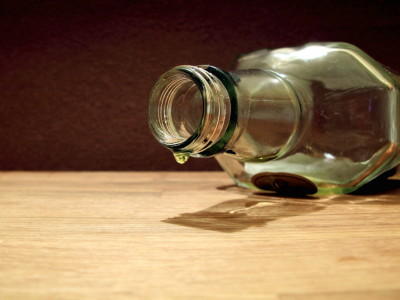Mice that become alcohol dependent turned out to be different in brain response from other mice from `` when drinking alcohol for the first time ''

by
Many people enjoy liquor without serious and long-term dependence, but some people become alcoholic who can't stop drinking. Experiments with mice have revealed that 'alcohol-dependent mice have different brain responses to the first cup, even if they have not drunk alcohol in the past.'
A cortical-brainstem circuit predicts and governs compulsive alcohol drinking | Science
https://science.sciencemag.org/content/366/6468/1008
Scientists discover 'just one drink' is more accurate than they thought | Inverse
https://www.inverse.com/article/61099-brain-activity-binge-alcohol-drinking
Many scientists who study the causes and treatment of alcoholism tend to focus on genes as a way to predict who can become alcoholic. From past research , we know that there are hundreds of genes related to alcoholism, but genetics alone is the difference between `` persons who become alcoholic '' and `` people who can go along with alcohol '' Cannot be fully explained.
The research team of Kay Tye , a neuroscientist at the Soak Institute , experimented with a focus on brain activity rather than genes as a way to predict alcoholism. In this experiment, genetically identical male mice were used to drink alcohol little by little, and the tendency of alcoholism and brain response were analyzed.

by
At the beginning of the experiment, all mice were given a small amount of alcohol without any previous alcohol consumption. At this time, in many mice, a circuit running from the prefrontal cortex involved in making decisions to the dorsal mesocerebral gray matter involved in basic brain processing was activated. On the other hand, in some mice, this circuit was suppressed and did not activate much.
At this point, there was no difference in the desire and behavior for alcohol between the two mice, and it was not possible to determine which mice were prone to alcoholism in terms of behavior. The only difference between mice that are prone to alcoholism and those that aren't is `` just one drink '', says co-author of the study, Associate Professor Cody Siciliano of Vanderbilt University .
The research team took time to let the mouse become a small amount of alcohol and then said, “I was allowed to drink alcohol freely for two hours in a row.” This event seemed to have had a great impact on mice whose prefrontal cortex to dorsal periaqueductal gray matter circuits were not activated, and this type of mouse seemed more obsessed with something than other mice I drank alcohol. And it seems that mice whose alcohol does not activate even after drinking alcohol began to show symptoms of alcoholism.
Tye said, “At the time of the first alcohol intake, the behavior was indistinguishable, but the nerve activity was very different. The degree of decrease in nerve activity in this important circuit “I was able to predict the onset of alcoholism very accurately,” he said.

by
The results of this study suggest that normal mice had an “aversion signal” for alcohol, which suppressed excessive alcohol consumption, but that alcohol-dependent mice suppressed the aversion signal. . After that, although the research team did operations such as mixing alcohol and quinine to give bitterness or giving an electric shock after drinking alcohol, alcoholic mice could not stop alcohol consumption.
“In some animals, the circuit from the prefrontal cortex to the dorsal mesencephalic gray matter is sensitive to alcohol in some animals. This circuit is useful for decision-making in a variety of situations. Importantly, this circuit doesn't work well after an extreme drinking experience. '
Furthermore, the research team, light genetics using to manipulate the brain activity of mice of alcohol addiction, was to mimic the activation of the circuit found in a normal mouse. Then, it was confirmed that alcohol-dependent mice whose circuit was activated decreased the tendency to drink, and that it was possible to improve alcoholism by manipulating brain activity. The mouse and the human brain are different, and it may take many years for this discovery to be used in actual treatment, but the research team claims that the research results are promising for the treatment of alcoholism doing.

by ELEVATE
Related Posts:
in Science, Posted by log1h_ik







